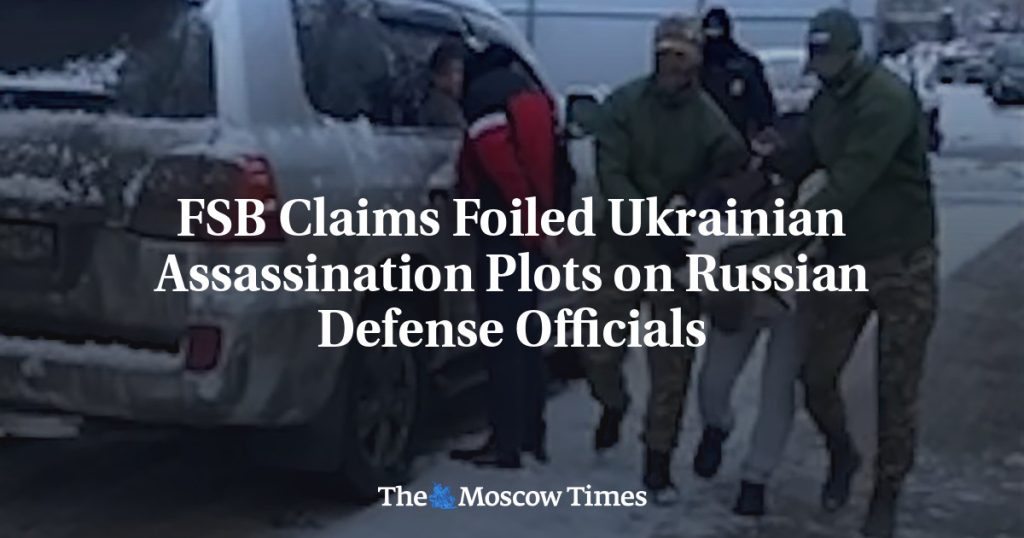Russia’s Federal Security Service (FSB) recently announced that they had successfully thwarted several assassination plots orchestrated by Ukrainian intelligence and carried out by Russian citizens recruited to execute the attacks. The FSB stated that the assassination attempts targeted senior officers of the Russian Defense Ministry who were involved in special military operations, as well as their family members. Four Russian nationals were detained during operations, and searches uncovered improvised explosive devices and communication equipment used in the criminal activities.
One of the suspects, a Russian citizen who had been living in Ukraine since 2020, returned to Moscow in November disguised as a deportee from Ukraine. The FSB alleged that he retrieved an explosive device disguised as a portable power bank and surveillance equipment from a hidden cache. The device, equipped with magnets, was intended to be placed under the official car of a senior Defense Ministry officer and detonated remotely from Ukraine. Ukrainian intelligence allegedly coordinated the plot with the suspect’s wife, who remained in Ukraine’s Poltava region, and planned to help him escape to Ukraine and then to an EU country following the attack.
In another incident, a Moscow resident was detained for allegedly conducting surveillance on the homes and workplaces of Defense Ministry officials and their families. The individual reportedly sent photos and videos to Ukrainian handlers to assist in planning attacks. The FSB also described a plot involving two Russian citizens tasked with delivering an explosive device disguised as a document folder to a Defense Ministry officer. The device was retrieved from a cache in the Moscow region using coordinates provided by a Ukrainian national reportedly residing in Poland.
All four suspects were charged with various offenses, including illegal handling of explosives, preparation of terrorist acts, and high treason, which carry a maximum penalty of life imprisonment. These arrests come in the aftermath of the assassination of Igor Kirillov, head of the Russian Armed Forces’ radiation, chemical, and biological defense troops, in Moscow on December 17. Kirillov and his assistant, Ilya Polikarpov, were killed by a bomb attached to a scooter parked at the entrance of a building they were exiting. Ukrainian media, citing intelligence sources, claimed that the attack was a special operation by Ukraine’s Security Service (SBU).
Russian investigators have since detained a suspect in Kirillov’s killing, identified as a 28-year-old Uzbek national, who reportedly confessed to being recruited by Ukrainian intelligence. The FSB’s actions in thwarting these assassination plots highlight the ongoing tensions between Russia and Ukraine, as well as the complex web of espionage and covert operations that characterize relations between the two countries. The alleged involvement of Ukrainian intelligence in these plots further complicates the already strained relationship between the two neighboring nations, raising concerns about the potential for further escalation and violence in the region.















